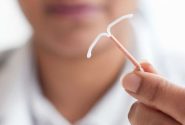(HealthDay News) — (Tasrir) — If you’re one of those people, even that transient loss of connection with others could be impacting your physical health, a new study finds.
“A lot of research is focused on loneliness being a binary trait — either you’re lonely or you’re not. But based on our own anecdotal lives, we know that’s not the case. Some days are worse than others — even some hours,” explained study lead author Dakota Witzel.
“If we can understand variations in daily loneliness, we can begin to understand how it affects our daily and long-term health,” said Witzel, a postdoctoral research fellow in the Center for Healthy Aging at Penn State University.
As Witzel’s group noted, long term loneliness is a known health risk factor — so much so that in 2023 U.S. Surgeon General Vivek Murthy labeled loneliness a public health crisis. He noted raised rates of depression and other mental health troubles tied to loneliness, as well as a 29% higher risk of heart disease, a 32% increased risk of stroke and a 50% increased risk of developing dementia in older adults.
But what about more temporary moments or days of loneliness?
In the study, Witzel’s group looked at data on middle-aged Americans from the 1,538 participants in the National Study of Daily Experiences (NSDE). That effort is led by senior STUDY author David Almeida, a professor of human development and family studies at Penn State.
The NSDE conducted phone interviews with participants, tracking their emotional ups and downs each day over an eight-day period. The team also tracked any physical health issues participants might be having.
The result: The less lonely a person felt on a given day, the less likely they were to have everyday physical symptoms like fatigue or headache, Witzel’s group found.
If such symptoms did appear, they were less severe on a “low loneliness” day than on a day the person was feeling more lonely.
The study was published recently in the journal Health Psychology.
“These findings suggest that day-to-day dynamics of loneliness may be crucial in understanding and addressing the health effects of loneliness,” Almeida said in a Penn State news release. “Increasing feelings of social connection even for one day could result in fewer health symptoms on that day. Such a daily focus offers a manageable and hopeful micro-intervention for individuals living with loneliness.”

















